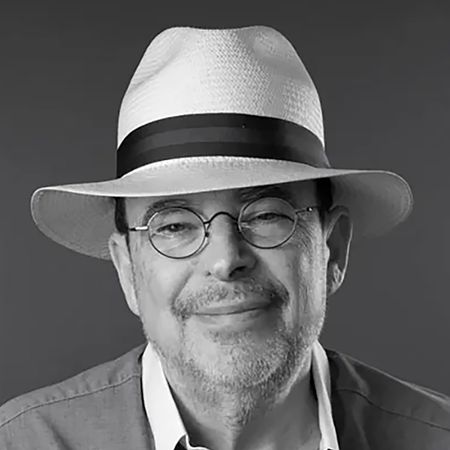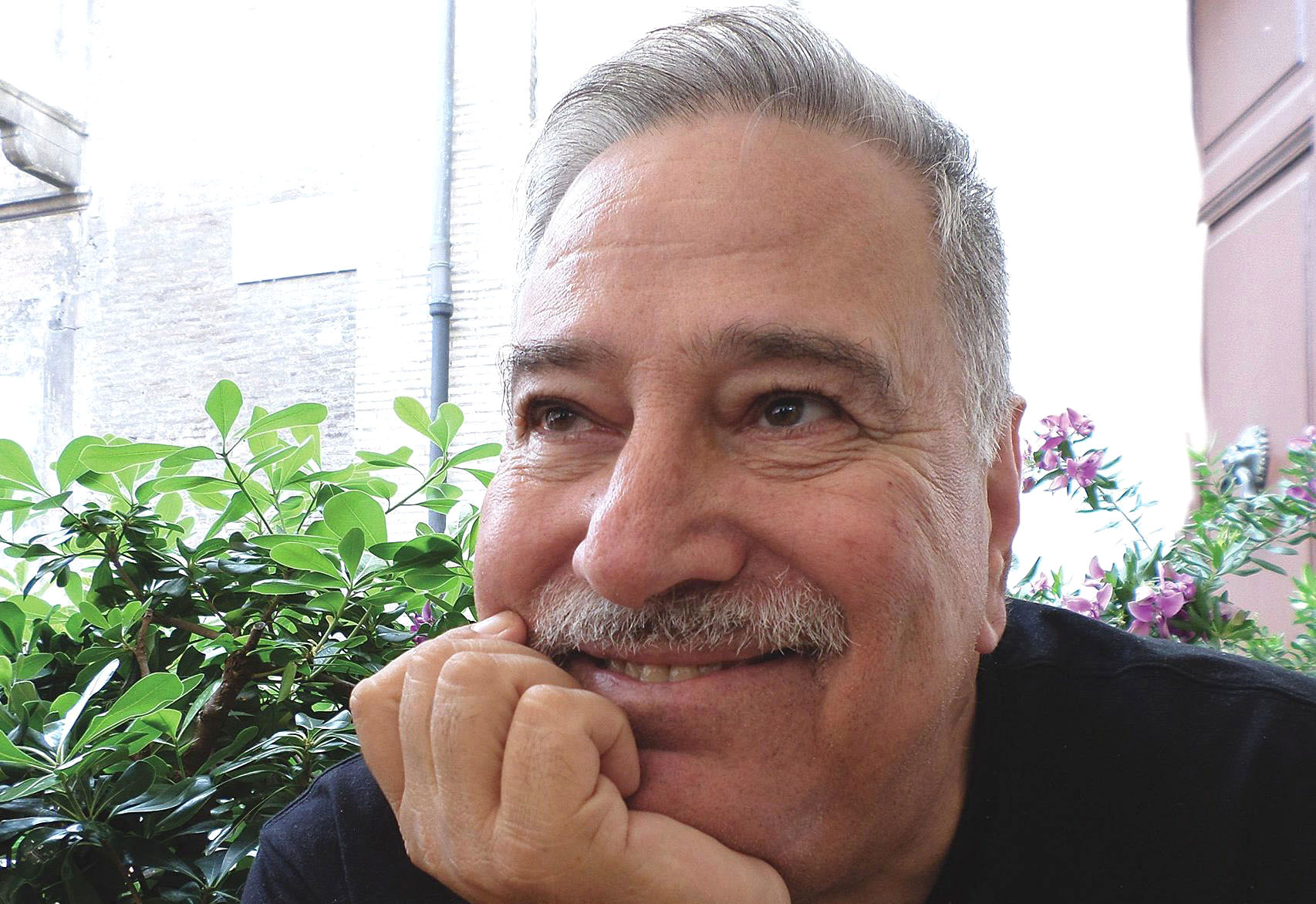Peter Klatzow, one of South Africa’s most influential composers, died just after Christmas, following a career in which he had written meticulously crafted vocal music, chamber works, liturgical music, an opera, and so much else during his long career. Along the way, music, written with children as an audience, flowed from his pen as well.
His serious music studies had begun with a scholarship that allowed him to Britain to study at the Royal College of Music. Later, he moved on to Italy for further training. It was in that period that he met the famous music teacher, Nadia Boulanger, who had been delivering a lecture. Many of Boulanger’s students had gone on to become some of the twentieth century’s most prominent composers. When she met with the young Klatzow, following her lecture and after she had examined some of his youthful compositions, Boulanger invited the young man to come to Paris to study with her. But Klatzow, unaccountably, kept putting off taking up that invitation and went to Florence instead for additional music studies.
Then, one day, he called Boulanger, and she informed him she had been waiting for months for him to arrive in Paris to study with her. As he told the tale, after that, the very next day, he was on the train to Paris. Boulanger herself was a student of Gabriel Fauré, and that musical lineage stretched back through earlier composers back to Baroque era composer, Luigi Cherubini. With this decision, Klatzow was firmly tied to generations of musical tradition, training, and composing.
Returning to South Africa, he eventually became a fixture at the South African College of Music at the University of Cape Town, guiding new generations of South African composers and musicians. By then, Klatzow was becoming increasingly fascinated with the poetry of the /Xam people of the Cape after encountering poet and professor Stephen Watson’s book, Return of the Moon, where Watson had recast material recorded by Lucy Lloyd, as an outcome of her interactions with the San prisoner !Kweiten-ta-Ken. He had been remanded from incarceration in jail to home service for Lloyd’s uncle, Wilhelm Bleek, the German linguist living in 19th century Cape Town.
Together, Lloyd and Bleek studied the /Xam language and its poetry, preserving its legacy as the old ways were vanishing. Klatzow’s growing attraction to this material led him to turn some of this translated /Xam poetry into song cycles, and then, later on, to turn Lloyd and !Kweiten-ta-Ken’s experiences into a short but powerful one-act opera.
In another of his compositions, Klatzow composed music to the well-known African tale of the heroic young girl, Tintinyane, written for children, in a work that echoed Prokofiev’s Peter and the Wolf as well as the sounds and textures of African music.
In yet another work, he composed the vocal/piano settings of songs composed by Zulu royal family member Princess Magogo (listen to an excerpt here, sung by the late Sibongile Khumalo, that had originally been captured for western notation by the late Mzilikazi Khumalo.
https://soundcloud.com/peteklat/princess-magogo-songs-sk
(Klatzow sometimes seemed to relish a good fight, and so almost inevitably, there was some vigorous debate about the relative importance of the two composers’ respective contributions to the Princess Magogo song cycle.) Around that period as well, Klatzow had been commissioned by the Southern African Music Rights Organisation (Samro) to set President Thabo Mbeki’s most evocative public address, his “I am an African” speech, to music.
Meanwhile, Peter Klatzow was also embracing that most African of musical instruments, the marimba, as a focus for many of his compositions. His music for marimba drew enthusiastic responses from audiences and performers alike, around the world, and leading marimba players such as Japan’s Kunihiko Komori have often performed Klatzow’s compositions for that instrument, and recorded them. In recent years, in response to our friendship, he composed a short work for young marimba students whom my wife was working with as a music instructor in Johannesburg primary schools.
Despite his sometimes combative reputation, Klatzow could be generous to young composers with his thoughts on their works. Six years ago, he was “composer in residence” for the premiere of the annual Johannesburg International Mozart Festival for which he composed a new work – yet another composition that he had drawn upon the poetry of the /Xam people, entitled, All People Become Spirit People When They Die.
In that festival, he had participated in a panel which was designed to respond to new works from a trio of student composers. Matthew Dennis, Antoni Schonken, and Diale Peter-Daniel Mabitsela. The three had earlier been challenged to compose a new work using just an ensemble of violin, cello, flute, bassoon and marimba, and inspired by a set of Lebohang Kganye’s photographic images. Once the works were performed before an audience, Klatzow joined the composers for a panel discussion that helped the audience get inside the composers’ creative impulses but that also allowed Klatzow and the three younger composers to talk frankly about the wellsprings of their respective creative energies – and the difficulties they encountered in actually composing their new music.
It is true that Peter Klatzow was a complex person and some saw him as a kind of “gatekeeper”, patrolling the perimeter of the South African composers’ world. Still, my own daughter, a vocalist and songwriter, had found him to be encouraging to her in her efforts. Upon hearing about his death, she had written to me that he had been “a lovely, strange, funny, talented, and sweet man”.
When Peter and I talked about his compositions and his “return to tonality” from all those more avant-garde compositional ideas that used to be much more popular a generation earlier, Klatzow had told me that back in the 1970s it somehow seemed very important to be that way, but, now, that impulse seemed to be receding for composers. As conductor Richard Cock described Klatzow’s work, it became a version of neo-romanticism.
Klatzow had gone on to say to me that the problem with minimalism was that it had little in the way of real melodies. Rather, it was all about harmony and rhythm, but it treated melody as a kind of an abandoned romantic notion. “But surely most people listen to music for a melody?” I had asked, and he had vigorously agreed, “Yes, it is very important,” and, as a result, he re-embraced melody, tonality, rhythm – and pulse. As Klatzow said, “Our hearts beat, that’s the basis, and it is the core of our understanding.”
In more recent times, he noted he found he had increasingly been drawn to the music of Beethoven and Schubert. Klatzow explained that the truly nourishing element of Beethoven’s work is the sense of form. His late string quartets had set the frame for a much later composer like Gustav Mahler. Klatzow argued that the silences in Beethoven’s late quartets are crucial. People don’t understand how important such silences are in music. But, if a composer writes atonal music you just don’t have that anymore, and so that brings one back to tonal techniques. “I go out of tonality for a sense of departure, but then there is a sense of return.”
Late in life, Klatzow expressed some fears for the future of “serious” music. Back in 2015 when we had talked about such things, he had worried that, increasingly, orchestras and audiences are failing to have sufficient intellectual curiosity for new music — or is it, perhaps, that there is something about new music that is alienating in some strange way, he mused.
I had asked him if we were at the end of classical music as we have come to think about it and he had replied, “No, I don’t think so, but the way we access music has changed. CD stores are shutting down. It has had its day. The CD was indestructible and once you bought a copy, you didn’t need to buy again and they have virtually run out of things to record. With forty-six versions of those Chopin etudes, why bother to do it again? And I climb onto YouTube [to look for things I want to hear] and if I really love it, I download it to an MP3.”
Now, after two years of a near-total hiatus in the live, public performance of classical music due to all the Covid-19 induced lockdowns and restrictions, this crisis may have come closer still.
Asked to speculate on the future of classical music in South Africa, he laughed and said he really couldn’t even answer for Europe. Or, as he had asked and answered, “Who is the Verdi of today? Why is it Andrew Lloyd Weber?! People love it and he is doing what Verdi was doing for his audiences then.”
After his passing was announced, I asked Richard Cock for his reflections on the now-late composer and Cock told me, “Ever since I started on my path as a musician I have known Peter Klatzow. He was a lecturer at UCT when I started there as a student in 1968, and I have kept in close contact with him ever since returning to South Africa in 1980, after eight years abroad.
“He has influenced countless young composers through those years, and several of them have had distinguished careers. I have performed many of his works, both for orchestra and choir. His return to a type of neo-romanticism in his later years meant that his music was available and relatively easy for amateurs to perform, and so my choirs readily took on his works. He was composer-in-residence of the Johannesburg International Mozart Festival in 2015, and I was amazed at the speed of his work. He told me often that he would compose every day. If no commissions were being worked on, he would write a song, so I guess there is a lot of unperformed material waiting!
“When Covid struck last year, the mass setting he had written for the Mozart Festival was going to be performed in Germany, and earlier this year, we would have performed ‘Tintinyane’ at the National Arts Festival. Sadly both were cancelled, but they would have been a fitting way to have honoured him.”
With Peter Klatzow’s passing, and with the gradual reawakening of possibilities for live music, surely it is time to plan and prepare for a concert of his works in all their variety, styles and influences. DM





 Peter Klatzow.
(Photo: helgaardsteynpryse.co.za/Wikipedia)
Peter Klatzow.
(Photo: helgaardsteynpryse.co.za/Wikipedia)